Dr. Muhammad Rabnawaz Establishes First-of-Its-Kind NSF IUCRC on Packaging End-of-Life Solutions
Professor Muhammad Rabnawaz has established the nation’s first National Science Foundation Industry–University Cooperative Research Center (IUCRC) focused on Plastic, Paper, and Hybrid Packaging End-of-Life Solutions (C3PS). The Center brings together academic and industry partners to advance scalable, circular solutions for sustainable packaging materials. C3PS aims to address critical challenges in packaging waste and materials circularity.
Learn more at https://c3ps.org/.
Team of MSU researchers awarded EPA grant to further sustainable packaging initiative
A team of researchers at MSU's School of Packaging has received research funding from the Environmental Protection Agency to produce environmentally low-impact packaging solutions as alternatives to non-biodegradable and single-use options.
Link: Click here to read more.
As the project advances, Rabnawaz recognizes the collaborations at the heart of this unique project.
“I want to acknowledge the EPA for their sponsorship of research critical to issues we are currently facing. I also want to acknowledge MSU and the School of Packaging, which are leaders in solving global packaging issues; their platforms give us a lot of opportunities and visibility to conduct impactful projects like this. This work would not be possible without the School of Packaging and the support of sponsors that help us continue advancing research addressing important issues.”
Sustainable Packaging Conference 2024: Navigating the Pathways to Zero-Waste
Feb. 12-13, 2024
9 a.m. - 5 p.m. ET
Virtual via Zoom
This conference will provide opportunities to learn about cutting-edge research in sustainable packaging, as well as emerging trends in this important field. Opportunities to form networks and to present your findings to the packaging community will also be offered through this forum.
Key Themes:
- Biobased and biodegradable plastics
- Sustainable paper packaging
- Advanced recycling technologies for plastics and paper
- Design for recycling strategies
More details and link to the event: Sustainable Packaging Conference 2024: Navigating the Pathways to Zero-Waste
Table salt could be the secret ingredient for better recycling
MSU research shows sodium chloride offers a safe, inexpensive and reusable pathway to recovering useful products from plastic waste. Here are the links to the news posts.
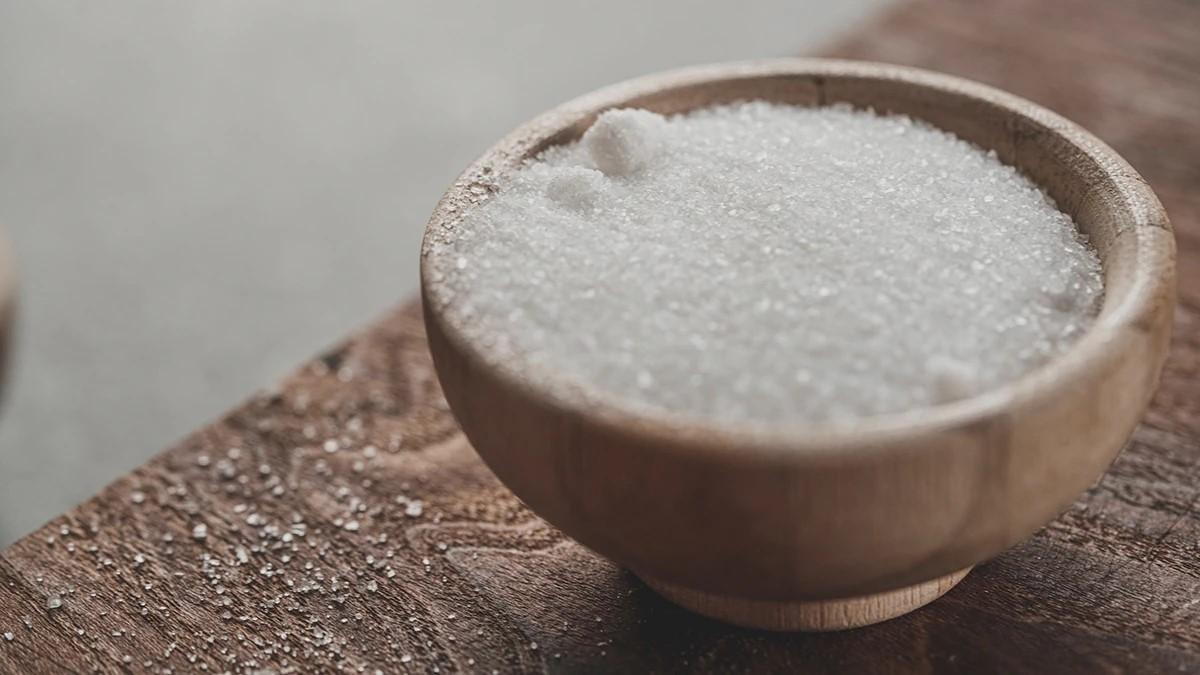
MSU Today: Read here
WLNS 6 News: Read here
MSU students are on the cutting-edge of creating solutions to eliminate plastic waste
With over 40 patents, a Michigan State University Associate Professor in the School of Packaging is working with his students to pioneer a path to zero waste. Read more at FOX47 News...
Muhammad Rabnawaz to be inducted into National Academy of Inventors
For creating technologies that have the potential to change the world and providing opportunities for future inventors, Muhammad Rabnawaz, an associate professor and Faculty Laureate in the College of Agriculture and Natural Resources at Michigan State University, will be inducted into the National Academy of Inventors as a senior member on June 26.
I empower my team members by giving them authority to express their hidden creativity and I encourage my team to take risks without worrying of failure, as each failure brings you one step closer to the solution. Read more...
It's our group's honour to be part of this prestigious news article, Go Green!
Why glass, paper and other options aren’t the simple alternative to plastic that they seem to be
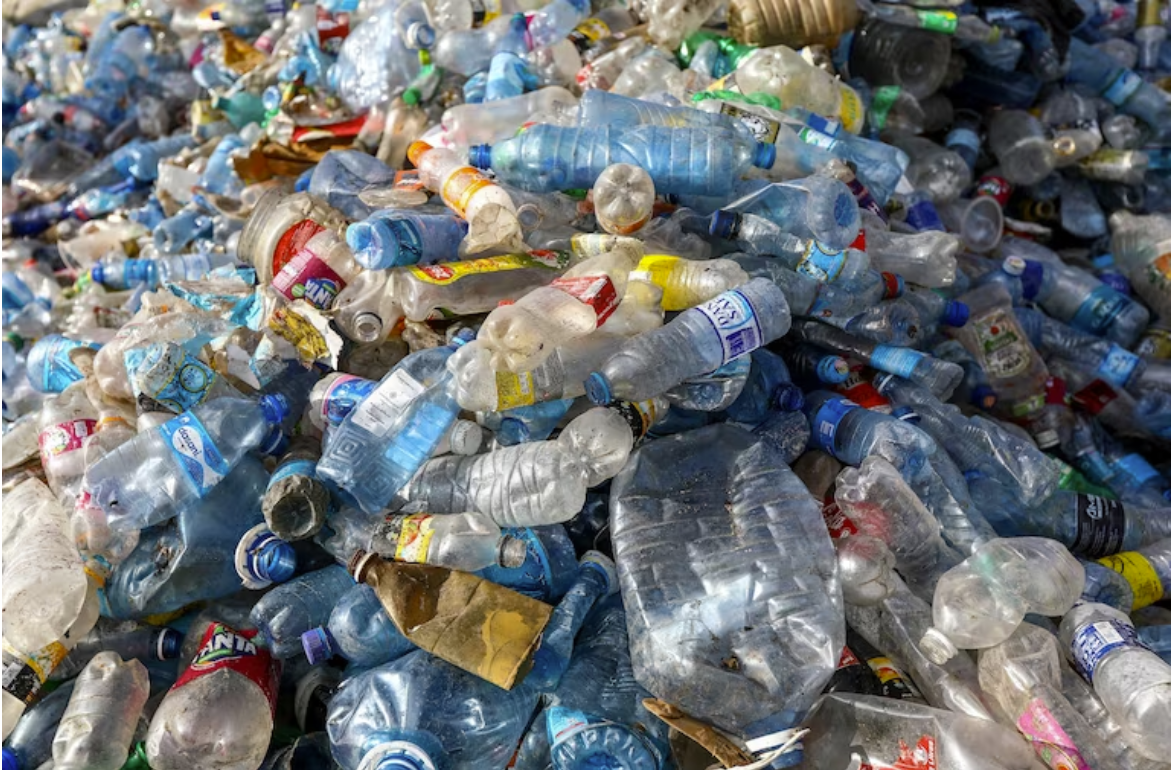
Sustainable Materials Packaging Team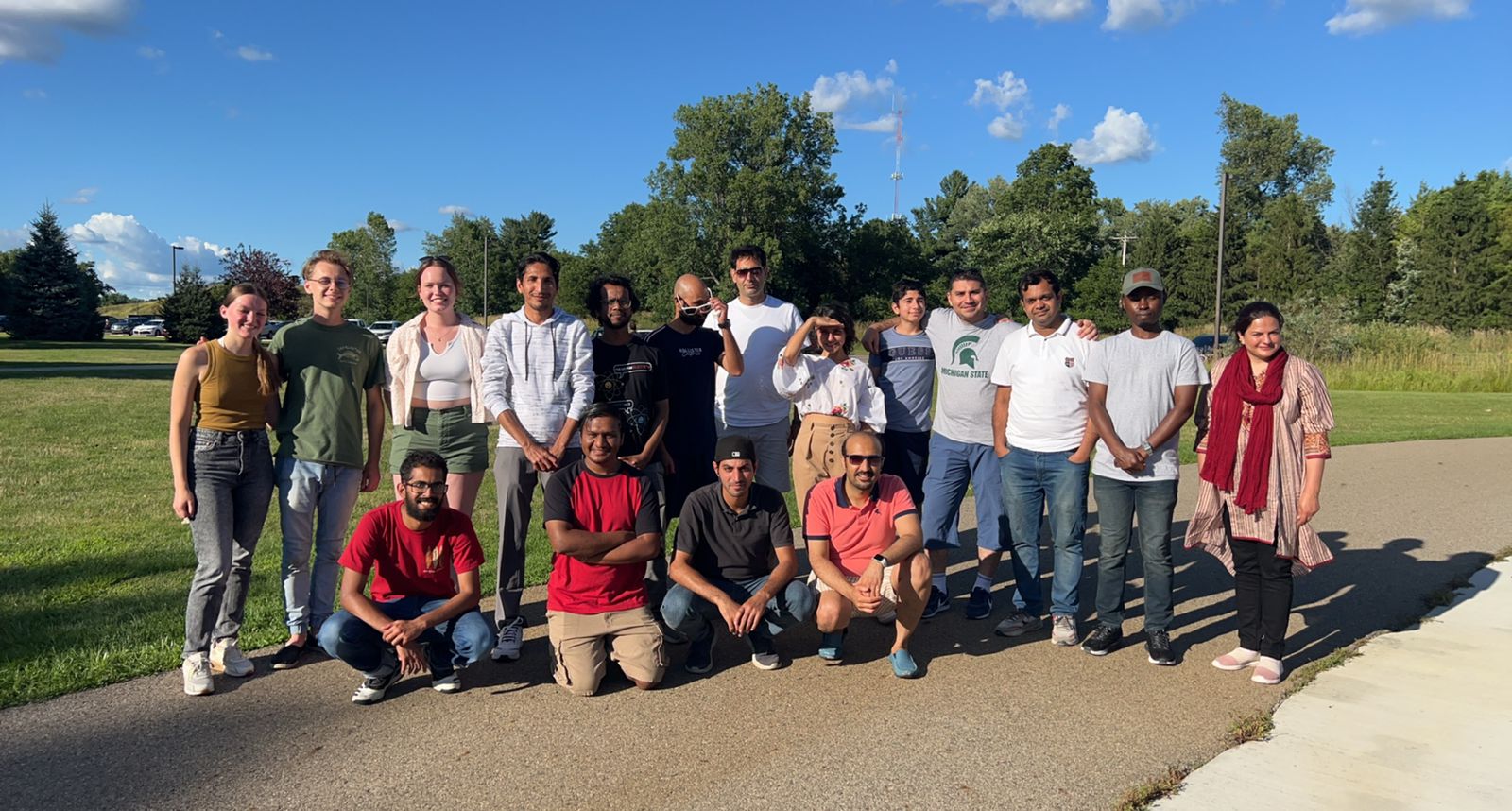
Date: 07-29-2022
MSU School of Packaging researchers are exploring high-barrier biodegradable paper as an alternative to plastic
The MSU School of Packaging was awarded a two-year, $450,000 National Science Foundation grant to design a high-barrier biodegradable paper (HB2P) as an alternative to plastics. Read more...
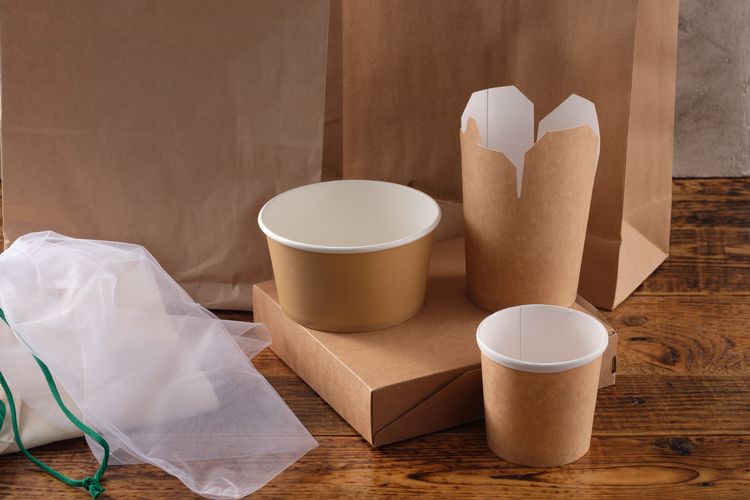
Inside the DOE's $1.7 million investment into sustainable plastic research at MSU
“Many people do not know that 30% of the plastic that is produced today, it goes into the multilayer packaging,” Rabnawaz said. “The problem is … even if you collect them, you cannot recycle them.” Read more...
The quest to recycle the unrecyclable
Thirty percent of plastic ends up in products that can’t be recycled even if collected. DOE is investing in Spartan research to help fix that. Read more...
Muhammad Rabnawaz: Confronting the plastics problem
Did you know that the United States recycles less than 10% of its plastic waste? The remainder is sent to landfills. Keeping plastic waste out of landfills and water systems is a complicated problem that MSU’s Muhammad Rabnawaz is working to simplify. Read more

2021 Innovator of the Year Award: Muhammad Rabnawaz
“The credit for our innovations primarily goes to my research team who put the ideas to work and the collegiality and supportive leadership at the School of Packaging and College of Agriculture and Natural Resources.”
Our article features as the cover image for Journal of Applied Polymer Science, Volume 139, Issue 7:
This cover image, designed by Syeda Shamila Hamdani, Zhao Li, Ping Ruoqi, Emily Rollend, Muhammad Rabnawaz, depicts the utilization of a bilayer coating approach using poly (vinyl alcohol) (PVOH) and zein to enhance the water vapor and oxygen barrier properties of paper materials. Paper can offer viable alternatives to plastics in many packaging applications if its barrier properties are improved. Due to the current plastic waste crisis, we must reduce our plastic use. DOI: 10.1002/app.51707




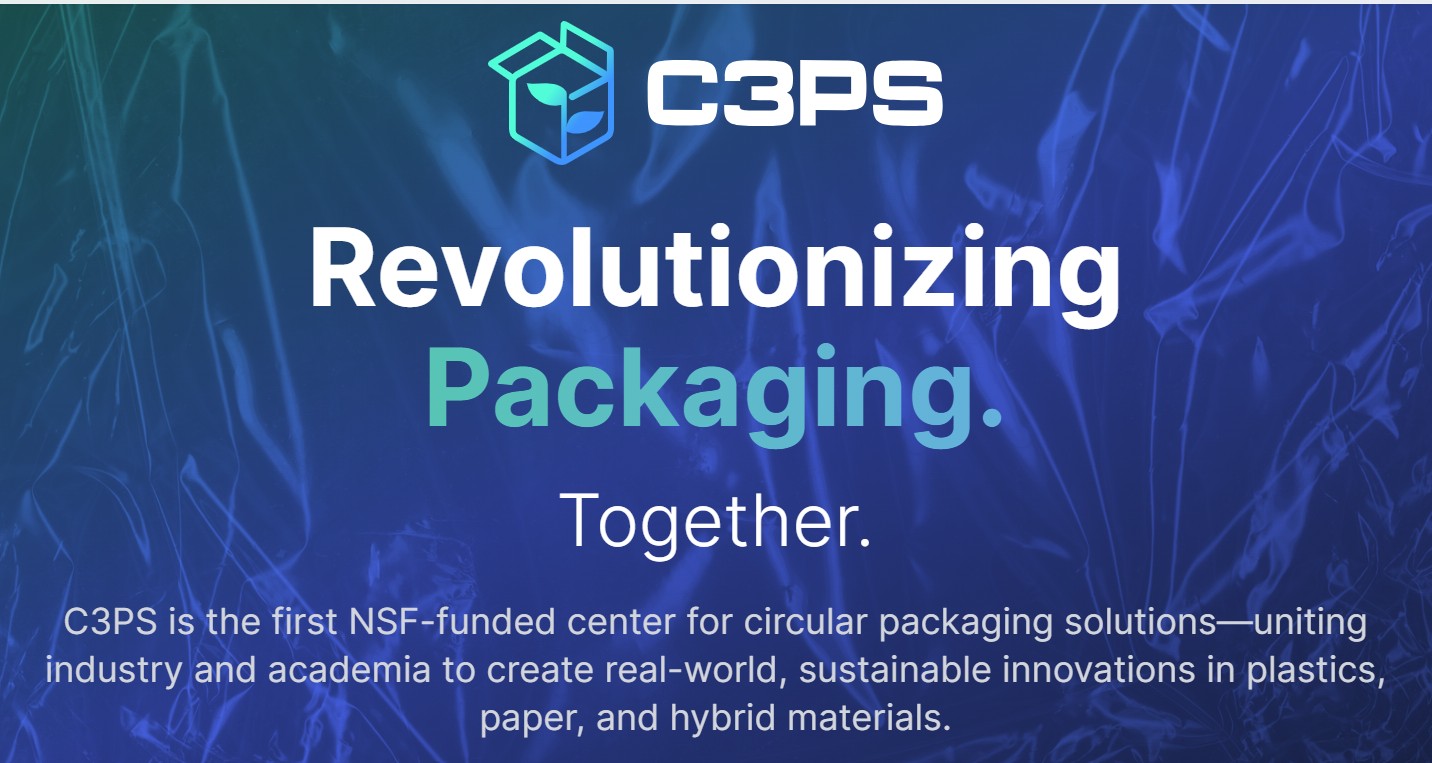


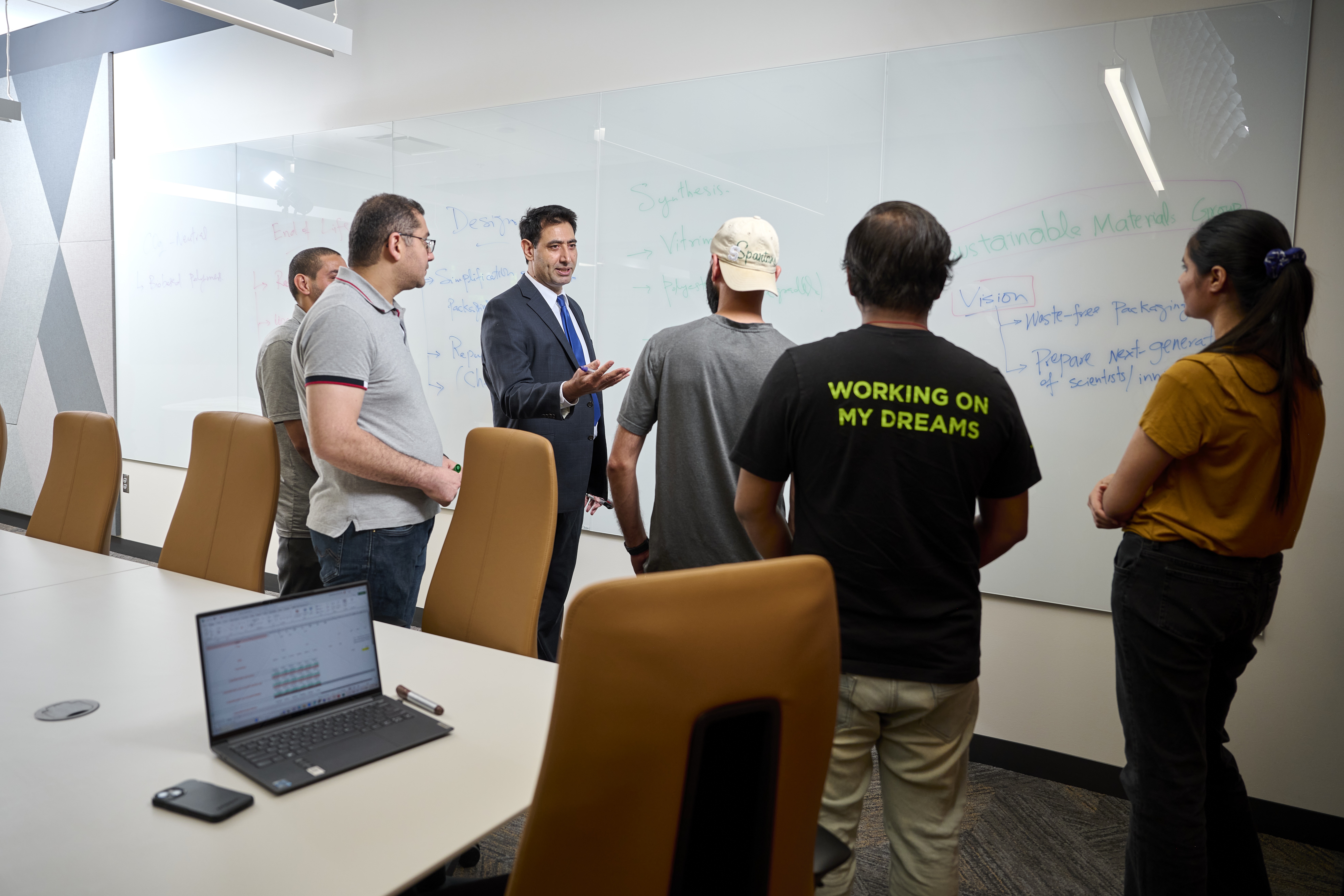
![Sustainable Packaging Materials: A Guide for Industry Professionals by [Muhammad Rabnawaz]](https://m.media-amazon.com/images/I/51z1zsy0K2L.jpg)
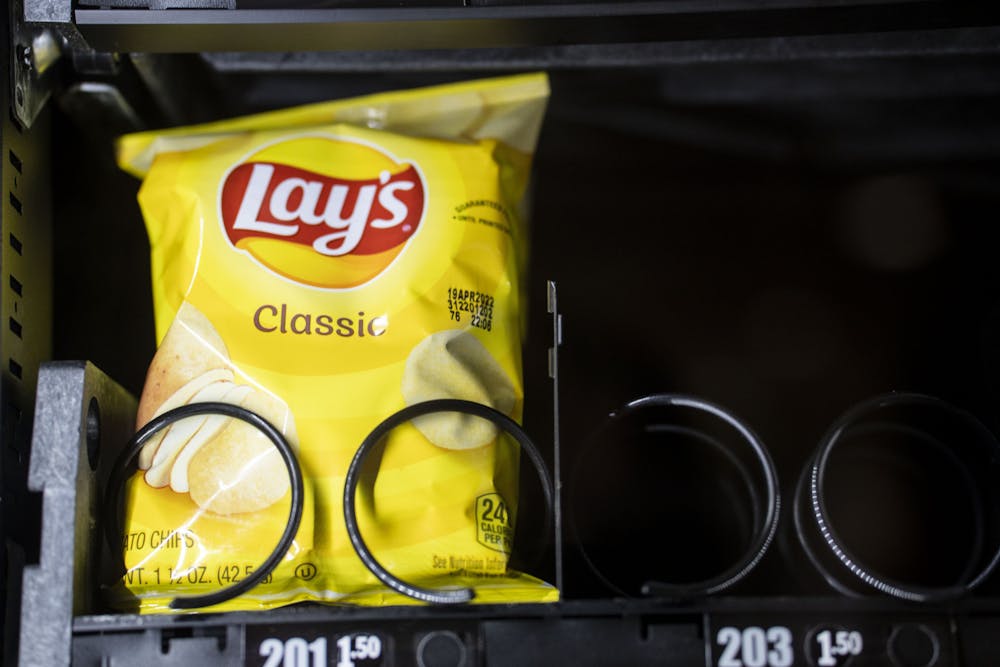

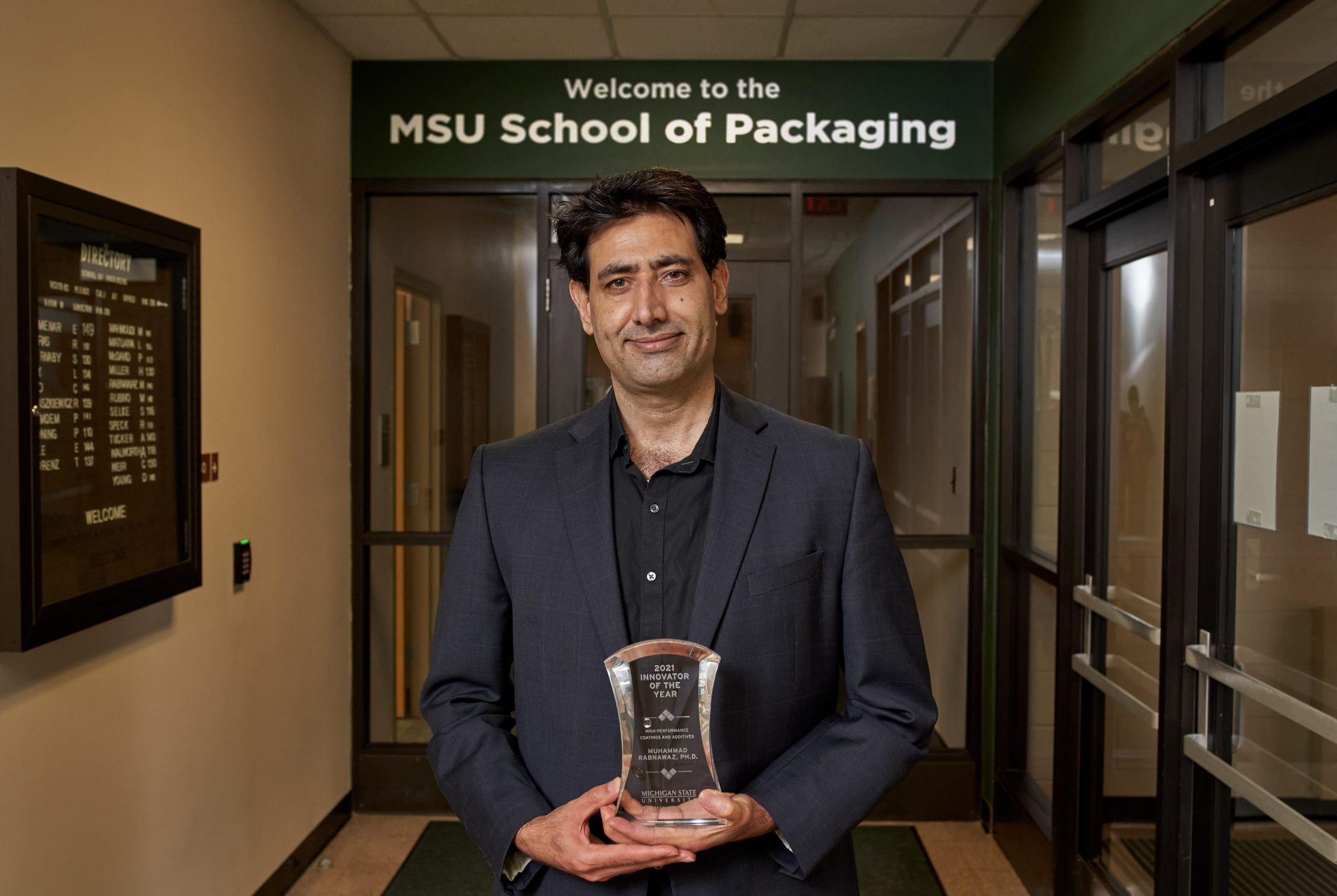
 Print
Print Email
Email